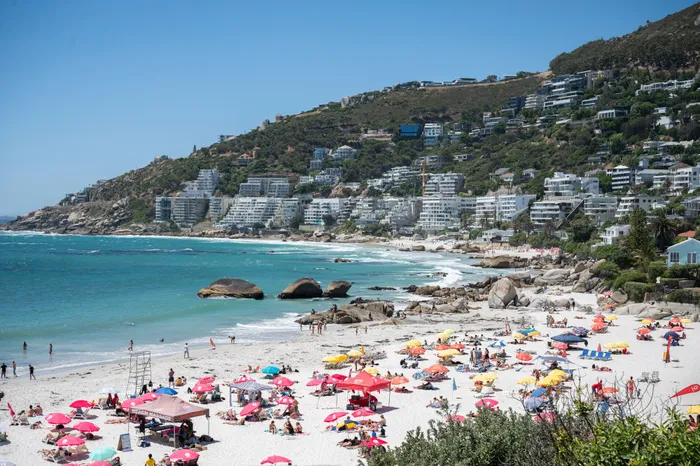NICD confirms no surge in coastal water-borne illnesses despite public concerns

. Despite Project Blue's concerns, the City of Cape Town maintains that its independent water tests show high-quality standards, ensuring safety at popular beaches.
Image: Armand Hough/Independent Newspapers
The National Institute for Communicable Diseases of South Africa (NICD) has confirmed that while there has been no reported increase in food or water-borne outbreaks long the coastal provinces , 26 alerts were recorded last month. These included six in KwaZulu-Natal and one in the Western Cape.
Health professionals are now being urged to report any rise in cases to the NICD's Notifiable Medical Conditions (NMC) system or to contact the institute directly.
On Monday, the Cape Argus reported on a woman who claimed she nearly died after a leisure swim at Saunders Rock beach led to a severe bacterial infection. Others have since come forward , saying they were also hospitalised with gastrointestinal and bacterial infections after swimming in Cape Town waters.
Others have since come forward, saying they were also hospitalised with gastro-intestinal and bacterial infections after swimming in Cape Town waters. The City of Cape Town has called for medical professionals to report infections if observed.
Residents from the Atlantic Seaboard Community Forum shared their experiences on Facebook while an independent survey conducted by Mark Jackson, who runs the “Bay of Sewage” Facebook group continues to investigate sewage and contamination in Cape waters. The claims come just weeks after a citizen-led investigation called Project Blue, Rethink the Stink revealed widespread contamination of sea water along Cape beaches.
Professor Nicola Page, Acting head of the Centre for Enteric Diseases at the NICD explained: “From our data, there have been no increases in food or water-borne outbreak notifications especially from the coastal provinces.
“From the 26 alerts followed up in February, KZN reported six and WC reported one incident. However, the NMC system relies on healthcare professionals and facilities to report suspected outbreaks so that they can be investigated. If the facilities or healthcare professionals suspect an outbreak, they should notify the NMC system or con-tact NICD for additional assistance.”
Professor Page explained how food and water borne diseases affected human beings. “Water-borne diarrhoeal diseases occur through ingestion of pathogens in contaminated water, which could include water used for recreational purposes,” she added.
“Diarrhoeal diseases associated with food and water-borne transmission are monitored by the NICD through the Notifiable Medical Conditions (NMC)system. ”Dr Anthony Turton, Environmental Advisor and member of Project Blue criticised the City’s sampling methods ,saying it was not accurate enough.
“The central issue is a trust deficit, which is being widened by the 3D strategy (Deny, Deflect and Demonise)used by the City officials.
This merely undermines trust and destroys whatever residual goodwill there might be. While the 3D Strategy is being applied, real people are being harmed, as shown by this case.
“There are various cases of this nature, but this is a high profile one, so it has caught the media attention. The simple truth is that the current sampling protocol used by the city is incapable of accurately assessing human health risk.
“Until such time that a more robust sampling protocol has been implemented, human health risk will be dependent on the winds and tides moving the sewage plume away from the beach. These can change at short notice, so a sampling protocol capable of capturing data from these variables is vital. That protocol is the heart of the dispute with the city.”
The Western Cape Department of Health and Wellness said they have not had any reports of an influx of cases but said it could be limited to private health facilities. In January, Stellenbosch University epidemiologist Dr. Jo Barnes and University of Western Cape chemistry professor Leslie Petrik released date showing that between November and December last year, 42% of sampling dates in Table Bay exceeded safety limits for E. coli and Enterococci.
The City has refuted the claims citing its own sampling data, and has challenged the findings.
Cape Argus
